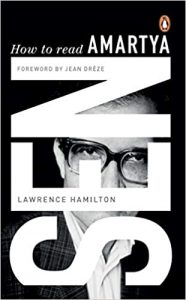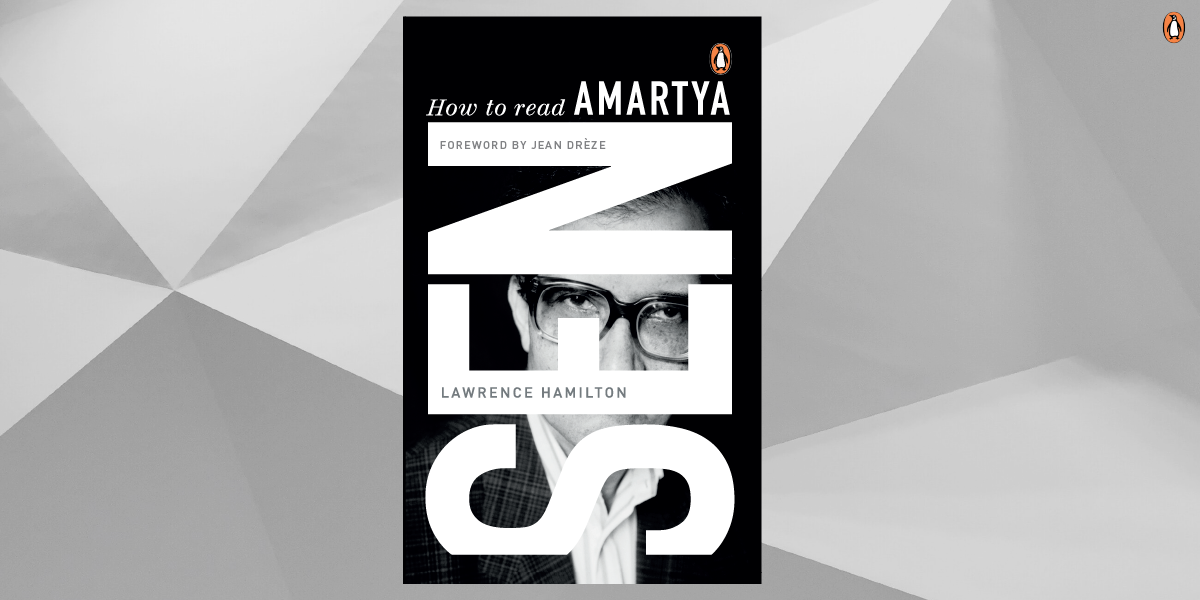Nobel Laureate Amartya Sen is one of the world’s best-known voices for the poor and the downtrodden, and an inspiration for the proponents of justice across the globe. He has contributed almost without peer to the study of economics, philosophy and politics, transforming social choice theory, development economics, ethics, political philosophy and Indian political economy, to list but a few. In How to Read Amartya Sen, Lawrence Hamilton provides an excellent, accessible guide to the full range of Sen’s writings, contextualizing his ideas and summarizing the associated debates. In elegant prose, Hamilton reconstructs Sen’s critiques of the major philosophies of his time, assesses his now-famous concern for capabilities as an alternative for thinking about poverty, inequality, gender discrimination, development, democracy and justice, and unearths some overlooked gems.
Today, we are sharing with you some interesting insights from the book on Amartya Sen that would strengthen your understanding of him as not just as an economist, but also as a deeply sensitive man and a visionary par excellence.
1) The man
‘For many years, Sanskrit was Sen’s second language, after Bengali, and he could read classical, Vedic and epic Sanskrit. This fascination with the language and literature of Sanskrit also balanced and complemented his acumen in mathematics. Both of these important skills have been readily apparent ever since in his academic work, often side by side in the same volume.’
‘Sen is also a child of the Bengal famine and Indian Partition. He experienced at first-hand as a nine-year old boy the horrors of the Bengal famine of 1943, as he did a little later the horrors of communal violence of Partition. In a number of places in his academic and non-academic work, he tells the story of how, during the sectarian tensions and violence that accompanied Partition, a Muslim man, a poor day-labourer, was attacked by a gang in his mainly Hindu area. The man was still alive as he stumbled into Sen’s childhood home; the now slightly older boy helped organize to have him sent to hospital. Unfortunately, he did not survive. Not only does Sen use this story to illustrate his oft-repeated and convincing point about the dangers of sectarianism and dogmatic community and identity-based thinking, but also that, despite his wife imploring him not to go into Hindu areas in this period fearing for her husband’s life, this poor man felt impelled to do so as he was the breadwinner for his family and could get work nowhere else.’
2) The economist
‘First, despite his training in the mainstream of strait-laced post-Second World War economics, in exemplary fashion he grasped the opportunities provided to him and schooled himself in the main currents of contemporary philosophy. This gave him a much broader and more capacious view of the assumptions of the ‘dismal science’ of economics, the main shibboleths of which would be his targets for years to come…. in line with two of his greatest forebears and two of the political economists upon whom he draws most, Adam Smith and Karl Marx, he has done all he can to understand the main problems and issues in economics from the perspective of a broader ethical concern: improving the quality of life of all.’
‘Second, especially in his work on famines, but also right across his many contributions in other areas, such as development, freedom, justice and democracy, Sen has always immersed his reader in his deep and broad knowledge of theory, while never tiring of supporting his claims and arguments with relevant empirical facts.’
‘Sen’s theoretical and practical proposals based on his version of capability value the agency of individuals in and of itself – as constitutive of a life worth living – and because they tend to produce better overall effects in development projects.’

3) The Visionary
‘While…Sen is first and foremost a man of letters (and numbers), he has also been involved in a number of practical projects that have changed the way the world thinks about and carries out a number of important and pressing matters, particularly as regards development. In fact, it is his work for and criticisms of large international bodies such as the United Nations (UN) and the World Bank (the Bank), and many others besides, that has broadened his appeal and fame, along with his associated practical contributions to, for example, global attempts to eradicate poverty and reduce inequality.’
‘Sen has provided new ways of conceiving of development, as well as new tools for measuring it and its component parts: famine, poverty, inequality, growth, freedom and so on.’
‘Sen’s view of freedom is much richer than is the norm in a great deal of economic, development, philosophical and political theoretical literature: it encompasses both the requisites for individuals to make their own individual choices and the social, economic and political means for individuals to exert the necessary democratic power within and beyond their own societies.’
**







